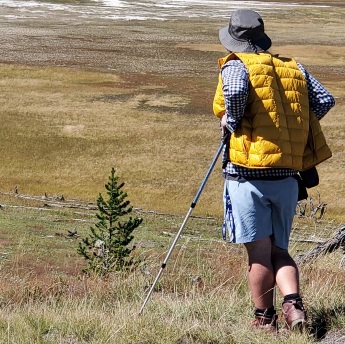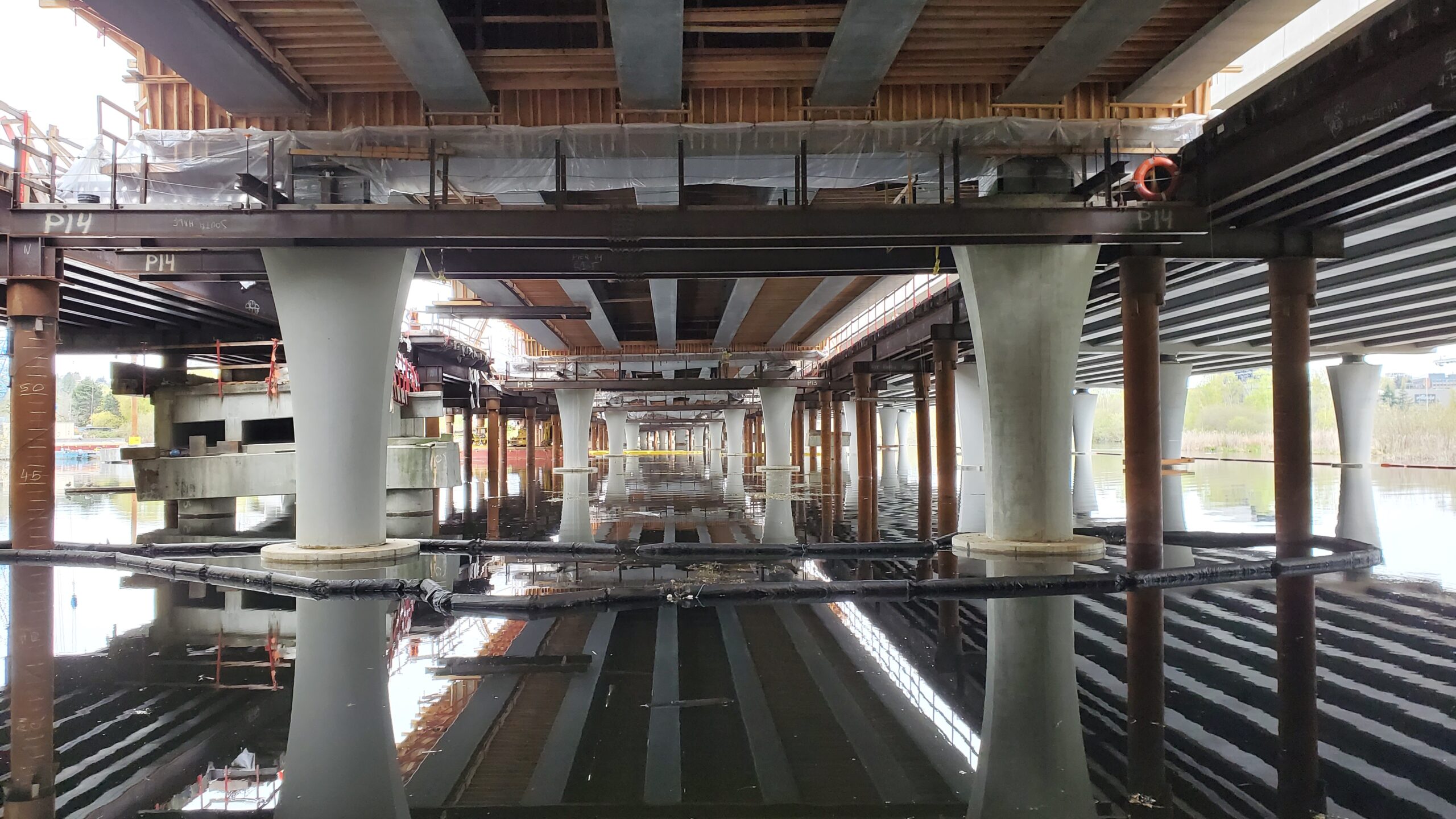The Fear and Loathing of America’s Homeless
Precariousness is a feature of the twenty-first century. As of mid-2023, 62% of American adults were living paycheck to paycheck. This says nothing about the spouses or children that also live in these cash-strapped households. We exist in a state of perpetual insecurity that is neither an accident nor a bug, but a feature, because a truly healthy economy could not leave a solid majority of Americans in such financially austere conditions.
To underline the precariousness all the more, the “typical” American has only $1,200 in their savings account – a sum woefully under the average monthly rent of $1,702 (let alone any other bills the average American has). The precariousness is felt all the way down the line (the ultrarich being the exception) and most Americans are only one paycheck short of living on the street.
This precariousness assumes something to be precarious over. Your walking along a cliff’s edge is precarious because one slip and you’re, quite literally, falling to your death. So it is financially for tens of millions of Americans; one missed paycheck and down you drop.
And drop many have.
Statistically, 2023 was the worst year for homelessness ever. “The numbers represent the sharpest increase and largest unhoused population since the federal government began tallying totals in 2007,” according to reporter Claire Thornton writing for USA Today. Homelessness increased by 12% in 2023, the total reaching to more than 653,000 people. And those numbers fail to capture those who live in substandard or inadequate housing.
One could be tempted to challenge the argument that 2023 was the worst year for homelessness ever simply by mentioning the Great Depression. The problems with that argument are manyfold. “There were no definitive counts of the numbers of Depression-era homeless; estimates ranged from 200,000 to 1.5 million homeless persons,” wrote sociologist Peter Rossi in a 1990 issue of American Psychologist.
Therefore, all we have are estimates — no hard data. Additionally, many of those considered homeless were actively migrating from one section of the country to another; their homelessness was temporary instead of permanent. Finally, during the Great Depression, the federal government was working to correct the problem, making real efforts to stem the swell of those unhoused and unemployed. During both of their presidencies, Herbert Hoover and Franklin Delano Roosevelt were willing to get creative to fix what was, at the time, an unprecedented crisis. While Hoover and FDR were theoretically political opposites, they were both functionally willing to do whatever it took to fix what was obviously, to both of them, a problem new and unusual in the history of the United States.
Homelessness now is not unprecedented, and its causes are as numerous as the stars in the night sky. According to a 1988 study, the three primary causes (at the time) were a low-income housing shortage, changing economic trends and inadequate income supports, and the deinstitutionalization of mentally ill patients. Additional causes, according to Emmaline Soken-Huberty writing for Human Rights Careers, can include stagnant wages, unemployment, lack of affordable housing, lack of affordable healthcare, poverty (which several of these other causes can feed into), lack of mental health and addiction treatment services, racial inequality, domestic violence, family conflict, and systemic failures. Underemployment, debt, the increase of the gig economy, and an overreliance on paid private services are factors as well.
There is also a tendency, as Jerusalem Demsas writes in The Atlantic, to chalk up homelessness to personal tragedy or misadventure. “When someone becomes homeless, the instinct is to ask what tragedy befell them,” Demsas writes. “What bad choices did they make with drugs or alcohol? What prevented them from getting a higher-paying job? Why did they have more children than they could afford?” When someone becomes homeless, the reasoning is privatized, as if there were no external underlying factors; in short, if you’re homeless, it’s your fault.
Demsas, in her brilliant essay, continues: “Identifying personal failures or specific tragedies helps those of us who have homes feel less precarious—if homelessness is about personal failure, it’s easier to dismiss as something that couldn’t happen to us, and harsh treatment is easier to rationalize toward those who experience it.” Demsas, in a single sentence, sums up why so many of America’s homeless are villainized.
When someone becomes homeless, the reasoning is privatized, as if there were no external underlying factors; in short, if you’re homeless, it’s your fault.
“It’s not surprising that people wrongly believe the fundamental causes of the homelessness crisis are mental-health problems and drug addiction,” Demsas goes on to add. “Our most memorable encounters with homeless people tend to be with those for whom mental-health issues or drug abuse are evident; you may not notice the family crashing in a motel, but you will remember someone experiencing a mental-health crisis on the subway.” And she’s right.
The person having a mental health crisis on the subway creates “a false impression that homeless people are often dangerous,” writes Nicole Wetsman for ABC News. Ironically, homeless people are more likely to be the victim of a crime than those who are housed.
A 2022 report from the Associated Press found that, at least in Los Angeles, homeless persons were suspects in 11% of homicides – and being under suspicion is not the same as being found guilty. The same report added that the homeless were actually the victims in 23% of homicides, with many of these crimes involving violence between two unhoused people. In general, “people experiencing homelessness are at high risk of being victims of crimes,” Wetsman writes. “Around 14% to 21% of unhoused people are estimated to have been the victim of violence, compared with around 2% of the general population,” she adds.
In more recent news, the Supreme Court will now hear Grants Pass, OR v. Johnson, Gloria, et al, a case which will determine whether or not it is a violation of the Eighth Amendment to fine or arrest people experiencing homelessness. For reference, the Eighth Amendment (in its entirety) states that: “Excessive bail shall not be required, nor excessive fines imposed, nor cruel and unusual punishments inflicted.”
The debate, in short, is between city officials who say they should be allowed to punish the homeless for being homeless and the homeless (and their advocates) who say they should not. The Supreme Court announced their intent to hear the case on January 12, 2024.
Rachel Cohen, a Senior Policy Reporter at Vox, gives a great history of this particular case, as well as similar, adjacent cases. In her article, Cohen writes that the Supreme Court, by taking this particular case, “is likely to resolve a key question underlying this debate: Is it a violation of the Eighth Amendment to issue penalties — whether jail time or tickets and fines — against people experiencing homelessness if they have no adequate shelter alternatives?“ In an ironic twist, the unhoused persons in the case were living in a homeless tent encampment; even when the homeless attempt to provide shelter for themselves they are denied even that privilege.
Even religious institutions – historically tasked with supporting the poor – who try to provide adequate shelter for the homeless are now dissuaded from doing so. Dad’s Place, a church in Bryan, OH, saw its pastor charged with zoning violations for letting homeless people sleep inside the building. The church, which does not have bedrooms, was told it could no longer house the homeless (even temporarily). It did so anyway.
A court filing stated that, due to the church’s zoning, people are not allowed to eat, wash their clothes, or sleep on the property. One can hardly imagine the city attacking the same church for offering cookies and coffee to its parishioners, but meals to the needy is too much. Ironically, the church is located next to a county homeless shelter and often takes in “those the [county] shelter cannot help.” Regardless of one’s faith, the idea that a church, next to a homeless shelter, is in trouble for letting homeless individuals sleep inside is ludicrous. The city would, quite literally, rather the homeless sleep outside on a bench than inside on a church pew.
The reason so many of America’s homeless get the cold shoulder, literally and figuratively, is that they are hated for being versions of us; the homeless are funhouse mirror distortions of everyone who isn’t homeless, of everyone who lives in fear of being unhoused and on the street. Seeing the homeless is an uncomfortable reminder of how close to the edge everyone is, how precarious we all are in our own lives. This is why the homeless are disparaged, why homelessness is framed as a moral failing. It’s easier to ignore the homeless and their plight if it’s their problem, if it’s their fault that they’re on the street. The cold heart of such reasoning is simple: They chose to be there. As if a housed person wakes up one morning and says: “I want to be a homeless addict living under an overpass in the dead of winter with nothing to eat – that sounds fantastic.” The homeless remind us how even the properly housed and employed are just a few missteps away from the tent encampment.
The reason so many of America’s homeless get the cold shoulder, literally and figuratively, is that they are hated for being versions of us; the homeless are funhouse mirror distortions of everyone who isn’t homeless, of everyone who lives in fear of being unhoused and on the street.
The uncomfortable truth, for the majority of Americans, is that they are a short drop away from homelessness. The current political, legal, and moral landscape villainizes the unhoused and unemployed, as well as those that try to help them and better their situation. No one wants to be homeless – especially the homeless. Yet until we accurately treat the systemic causes of homelessness, and not just its symptoms, nothing will change. “The righteous care about justice for the poor,” says Proverbs 29:7, “but the wicked have no such concern.” Let us hope there are just a few more righteous in 2024.
[A version of this essay appeared in Desert Dispatch on January 16, 2024.]


Leave a Reply